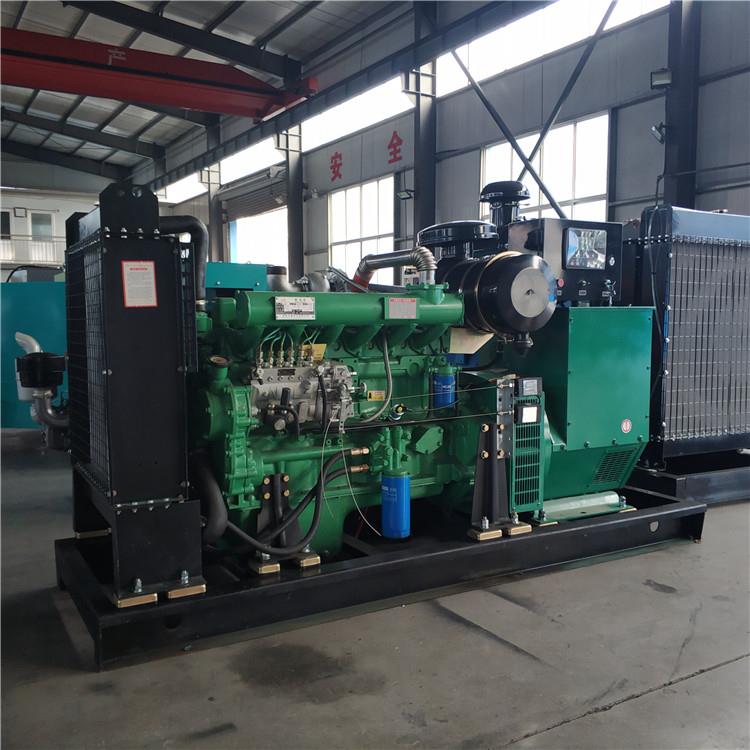Introduction
In the rapidly evolving landscape of energy generation and consumption, the importance of hybrid power systems has become increasingly evident. These systems, which combine multiple sources of energy to optimize efficiency, reliability, and sustainability, are gaining popularity across various industries and applications. One crucial component of many hybrid power systems is the diesel generator, a reliable and versatile power source that plays a key role in ensuring uninterrupted power supply. In this article, we will explore the role of diesel generators in hybrid power systems, their benefits, challenges, and best practices for maximizing efficiency and reliability.
Overview of Diesel Generators
Diesel generators are a type of internal combustion engine that converts diesel fuel into electrical energy. They are commonly used as standby power sources in areas where grid power is unreliable or unavailable, such as remote locations, industrial facilities, data centers, and critical infrastructure. Diesel generators are known for their reliability, durability, and high energy efficiency, making them a popular choice for backup power applications.
In a hybrid power system, diesel generators can be used in conjunction with other energy sources, such as solar panels, wind turbines, batteries, or fuel cells, to provide a reliable and cost-effective power supply. By integrating multiple energy sources, hybrid power systems can capitalize on the strengths of each source while mitigating their individual weaknesses, resulting in a more stable and efficient power generation solution.
Benefits of Diesel Generators in Hybrid Power Systems
There are several key benefits of using diesel generators in hybrid power systems, including:
1. Reliability: Diesel generators are known for their high reliability and durability, making them ideal for backup power applications. In a hybrid power system, diesel generators can serve as a reliable source of power during periods of low renewable energy generation or battery discharge.
2. Fuel Efficiency: Diesel generators are highly fuel-efficient, with lower fuel consumption per kilowatt-hour compared to many other types of generators. This efficiency is particularly important in hybrid power systems, where fuel costs can be a significant factor in the overall operating expenses.
3. Power Quality: Diesel generators produce stable and high-quality electrical power, making them suitable for sensitive electronic equipment and critical applications. In a hybrid power system, diesel generators can help maintain power quality and stability, especially during fluctuations in renewable energy output.
4. Scalability: Diesel generators can be easily scaled up or down to meet varying power demands, making them a flexible solution for hybrid power systems. This scalability allows for efficient utilization of resources and optimal performance under different load conditions.
Challenges of Diesel Generators in Hybrid Power Systems
While diesel generators offer numerous benefits, there are also some challenges associated with their use in hybrid power systems. Some of the key challenges include:
1. Environmental Impact: Diesel generators emit pollutants such as nitrogen oxides (NOx), particulate matter, and carbon monoxide during operation, contributing to air pollution and climate change. In hybrid power systems, minimizing the environmental impact of diesel generators is a critical consideration, especially in environmentally sensitive areas.
2. Noise and Vibration: Diesel generators can be noisy and produce vibrations during operation, which can be disruptive in residential or noise-sensitive areas. In hybrid power systems, mitigating noise and vibration from diesel generators is essential to ensure compliance with regulatory requirements and minimize disturbances to nearby residents or wildlife.
3. https://www.lkpowerplant.com/400kw/ and Operating Costs: Diesel generators require regular maintenance, including fueling, oil changes, filter replacements, and periodic testing to ensure reliable operation. The maintenance and operating costs of diesel generators can be significant, especially in hybrid power systems where multiple energy sources are involved.
4. Fuel Availability and Storage: Diesel fuel availability and storage can be a challenge in remote or off-grid locations, where access to fuel supplies may be limited. Ensuring a reliable fuel supply chain and proper storage facilities is essential to the uninterrupted operation of diesel generators in hybrid power systems.
Best Practices for Maximizing Efficiency and Reliability
To maximize the efficiency and reliability of diesel generators in hybrid power systems, several best practices can be implemented:

1. Proper Sizing: Properly sizing the diesel generator to match the power demand of the system is essential for efficient operation. Oversized generators can lead to inefficient fuel consumption and increased maintenance costs, while undersized generators may not meet the power requirements of the system.
2. Load Management: Implementing effective load management strategies can help optimize the operation of diesel generators in hybrid power systems. By balancing the load between different energy sources and storage systems, the overall efficiency and reliability of the system can be improved.
3. Fuel Quality and Maintenance: Ensuring the quality of diesel fuel and performing regular maintenance of the generator are critical for reliable operation. Contaminated fuel can cause engine damage and reduce efficiency, while neglected maintenance can lead to breakdowns and costly repairs.
4. Emissions Control: Implementing emission control technologies, such as exhaust gas scrubbers or catalytic converters, can help reduce the environmental impact of diesel generators in hybrid power systems. These technologies can lower pollutant emissions and improve air quality in the surrounding area.
5. Remote Monitoring and Control: Utilizing remote monitoring and control systems can help optimize the performance of diesel generators in hybrid power systems. Real-time monitoring of fuel levels, engine parameters, and power output can facilitate proactive maintenance and troubleshooting, leading to improved reliability and efficiency.
Conclusion
Diesel generators play a crucial role in hybrid power systems, providing reliable backup power and enhancing the efficiency and sustainability of energy generation. By leveraging the benefits of diesel generators while addressing the associated challenges, hybrid power systems can achieve optimal performance and resilience in diverse applications. Implementing best practices such as proper sizing, load management, fuel quality maintenance, emissions control, and remote monitoring can help maximize the efficiency and reliability of diesel generators in hybrid power systems. As the energy landscape continues to evolve, diesel generators will remain a valuable component of hybrid power systems, contributing to a more sustainable and secure power supply for various industries and communities.
